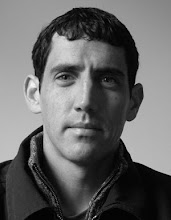A character must have a desire that drives him or her to care about what's happening. If the character shrugs off being hit in the face, and that's that, that's not a story. He's too passive. Now if the character is proud, if he desires to maintain his self esteem - perhaps because his father taught him to protect his self esteem above all things - then we have a story.
When he gets hit in the face, it's on.
The character will not just shrug it off. Or if he does, it will ruin him, because he has abandoned what's most important to him.
That's not to say he has to hit back. He might not strike back, but that's not the same as not caring. Maybe he controls himself to maintain his self esteem, because he's decided to take a more Gandhi-like approach or to preserve his dignity by not lowering himself to violence.
Either way, this is an intense inner struggle - if he cares deeply about it. If he doesn't care, no story.
In the case I proposed above, and in most cases, the character's history plays an important role in establishing the character's desire. I'm thinking of the movie Casablanca and the flashback to Paris that explains the passion and hurt between the Rick and Ilsa. That episode is necessary to explain their conflicted feelings desire for one another and desire to avoid the heartache that each represents for the other.
(One pitfall is writing overlong accounts of the past to explain the events lead to the character's desire.)
So how does this relate to the cycle of discovery and decision? In one sense it drives the character's decisions. Conflicting desires make the decisions more interesting.
If the character has a choice between love or money and she desires both, there's a story -- a common story. If man fears public ridicule more than anything, but wants to show his son it's alright to risk embarrassment, his decision of whether to sing at the town fair becomes dramatic. If he's a ham with no qualms about singing in public, no story.
Back to Casablanca, Rick wants the girl but he also wants to do what's right. He does what's right. (I'd have given a spoiler alert if I thought anyone hasn't' seen Casablanca. If you haven't, do.)
We could state an axiom here: Desire dramatizes decisions.
Conversely, decisions reveal desire in that decisions are actualized as actions or behaviors. If a woman goes to great lengths to avoid intimacy, we might guess she has a fear of intimacy. Fear generates a desire to avoid the thing we are afraid of. Some stories focus on the unpeeling of that onion that is behavior. I'm thinking of Robin Williams character telling Matt Damon's character in Good Will Hunting that "It's not your fault."
Williams' character has observed the behavior (decision making) of Damon's character and determined Damon's character was molested as a child. This moment is the climax of this portion of the movie -- and the whole movie, if I remember correctly -- because it forces Damon's character to face the deeply buried demons that drive self-destructive desires. The young man can stop being angry at himself once he realizes it's not his fault. He can then make choices that fulfill other, healthier desires.
Another axiom: Decisions (behaviors, actions) reveal desire.
In a story, the decisions that reveal desire are through action. The decision comes first, then the action. The director doesn't say "Matt Damon's character forgave himself and decided to seek happiness." The director shows him actively seeking happiness. This is the showing not telling part.
Sunday, February 15, 2009
Subscribe to:
Post Comments (Atom)




1 comment:
very well put and extremely useful insight
Post a Comment